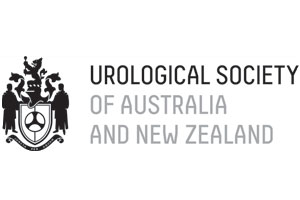17 July 2024
Prostate Cancer Foundation of Australia says a nationwide awareness campaign is needed on PSA testing for prostate cancer, following damning testimony from men who say they’ve been let down by the current guidelines.
The call follows the release of an independent report by UniSQ, commissioned as part of a review into the now outdated guidelines, finding that 68 percent of men felt the rules for PSA testing were ineffective.
Click here to read an article on this issue from The Australian.
Click here to read a summary of the consumer consultation findings.
The report also found there was too much focus on the harms of testing, which they said discouraged early detection and monitoring, were overly complex, lacked adequate consideration of family history, and failed to consider the quality of life and needs of survivors.
PCFA Chief Executive Anne Savage said the testimony of men and their families highlighted the urgent need for a federally funded awareness campaign to improve early detection and timely treatment of high-risk prostate cancers.
“We have heard harrowing stories from men and their families about how they’ve been let down by the current guidelines, which were released in 2016, at a time when identifying high risk prostate cancers was challenging,” Ms Savage said.
“Many respondents wrote about the shock and tragedy of late diagnosis, and some wrote of losing their life partners after being denied PSA testing by a medical professional.”
Responses to the Australia-wide UniSQ consultation survey suggest the guidelines have been interpreted inconsistently by health professionals, adding to consumer confusion.
An exhaustive review of the guidelines is now underway, with new protocols expected to be released in 2025.
“This report highlights the fact that under the current guidelines, many men have been given incorrect advice about their prostate cancer risks and screening options,” Ms Savage said.
“We need to provide clearer guidance for men and GPs, supported by a public awareness campaign. This is particularly important given that prostate cancer often has no symptoms, and increasing numbers of men go untested, only to be diagnosed with late-stage and incurable disease.”
The PSA test is a simple blood test that measures men’s levels of prostate-specific antigen, which can be an indicator of prostate cancer.
Current guidelines suggest men talk to their doctor about screening every two years from the age of 50, or earlier if the man has a family history, and recommend against testing after the age of 70.
“All aspects of these recommendations are being reviewed by national experts who are looking at the relative risks and benefits of testing,” Ms Savage said.
"It’s vital that clinicians and consumers are well armed with evidence-based approach to PSA testing for the early detection of high-risk prostate cancers.”
The report confirmed a strong consumer desire for no upper age limit on screening, with the current guidelines recommending against testing men over the age of 70, as well as calls for those with a family history to start PSA testing at an earlier age.
“One of the most important findings from this report was the need for a simplified, consumer-friendly summary that can be easily understood by doctors and patients,” Ms Savage said.
“Evidence suggests around 75 percent of Australians don’t know the current PSA testing guidelines.
“We’ve done a great job of raising awareness of breast cancer in Australia, but we continue to lag behind in prostate cancer. A clear set of consumer-centric guidelines, backed by public awareness activity, is crucial to survival from the disease.
“We can’t forget that prostate cancer is the most commonly diagnosed cancer in Australia, with one man newly diagnosed every twenty minutes.
“If we don’t detect prostate cancer until it has spread outside the prostate, it’s very hard to stop. It’s critical that we ensure all Australian men get a fair go at detecting it early.
Data from the AIHW shows that more than 250,000 Australian men alive today have been impacted by the disease, and more than 25,000 men are newly diagnosed each year.
“Our hope is that the release of a revised set of protocols early next year will be backed by a publicly funded nationwide awareness campaign,” Ms Savage said.
For more information and to find a local support group, call 1800 22 00 99 or go to www.prostate.org.au.
ENDS
About PCFA
PCFA is Australia’s leading community-based organisation for prostate cancer research, awareness, and support. PCFA’s vision is a future where no man dies of prostate cancer and Australian men and their families get the support they need, reducing the burden of prostate cancer for all Australians by mobilising the community to drive research, prevention and early detection, improved treatment, and world-class psychosocial care. Our focus is to be Australia’s leading charity fund for Australian-based prostate cancer research; to protect the health of existing and future generations of men in Australia; and to improve quality of life for Australian men diagnosed with prostate cancer and their families.














